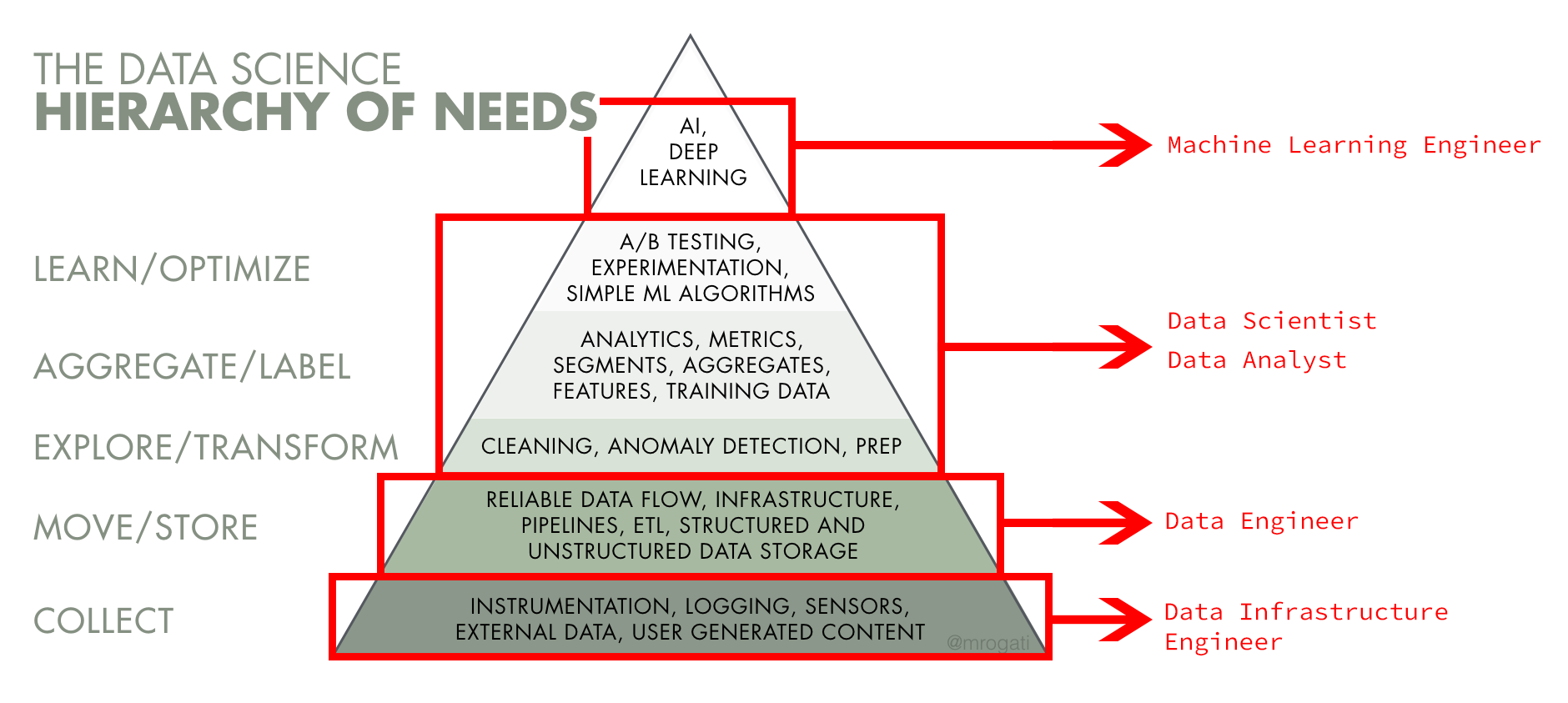Differences Between a Data Engineer & Data Scientist
At Zuar, data engineers and data scientists work together for streamline data staging and strategy. We’ll walk you through the roles and responsibilities of data scientists and data engineers so you can learn how to use data to your advantage.

The data industry has seen a huge boom in interest, and companies are beginning to see how working with a data analytics company can provide valuable insight to grow their business. But not everyone knows the difference between a data engineer and a data scientist.
High-quality insight and management are equally important components for using data to its fullest potential. At Zuar, data engineers and data scientists work together for streamline data staging and strategy. We’ll walk you through the roles and responsibilities of data scientists and data engineers so you can learn how to use data to your advantage.
Related

What is a Data Engineer? What Are Their Responsibilities?
A data engineer can be defined as a data professional who is responsible for preparing the data infrastructure so that it can be analyzed. A data engineer focuses on how production-ready the data is, and also on elements such as resilience, scaling, security, and formats.
Data engineers mostly come from a background of software engineering and can be well-versed in programming languages such as Python, Scala, and Java. They can also possess a degree in statistics or mathematics, as these subjects help them in applying different analytical approaches to solve different business problems.
Most data engineers know how to develop and manage distributed systems for the analysis of large volumes of data. They aid data scientists in turning multitudes of data into valuable and actionable insights.
The responsibilities of a data engineer are as follows:
- Design, build, test, integrate, manage, and optimize data from a collection of sources.
- Build the infrastructure and architecture that facilitate data generation.
- Combine a variety of big data technologies to create free-flowing data pipelines, which in turn generate real-time analytics.
- Jot down complex queries to ensure that the data is easily accessible.
If these seem like services that can help your company, find out more about data staging at Zuar.
What is a Data Scientist? What Are Their Responsibilities?
Data science is most definitely not a new field. However, due to the development in computer science, it has gone through a lot of changes in the past decade and is now considered to be an advanced type of data analysis.
Data scientists are those individuals who focus on taking the data that was cleaned and prepared for them by data engineers, and then use to dig out new insights. Data scientists and data engineers work together and complement one another to help an organization achieve its goals.
Data scientists learn how to code mainly so that they can conduct more complicated analyses of data sets. The responsibilities of a data scientist are listed below:
- Analyze the data after it has been generated.
- Conduct high-level market and business research, and identify opportunities and trends.
- Interact with the data infrastructure.
- Conduct online experiments to aid a business in scaling or developing personalized data products, which helps them understand their customers better.
- Present complex findings after engaging with business leaders and understanding their requirements.
- Exploratory and statistical analysis with R and RStudio to examine things like correlations and/or outliers.
Sounds like just what you need? Find out about Zuar data strategy and Tableau consulting.
What are the Differences Between a Data Engineer and a Data Scientist?

As far as skills and responsibilities are concerned, there are quite a few similarities between a data scientist and engineer. The difference is what they’re focused on. Let’s take a look at the main differences between a data scientist and a data engineer:
-
A data engineer’s goals are more focused on developments and tasks. They are responsible for building automated systems and model data structures in order to facilitate the processing of data. Therefore, their goal is to develop and create data pipelines and tables to support data customers and analytical dashboards.
Data scientists, on the other hand, are more focused on the questions. They need to ask and answer questions so as to reduce the overall costs, increase profits, and improve the experience of customers. Therefore, data scientists analyze, gather support, and come up with a conclusion to the question. Some of the questions they’re often faced with include:- What kind of ads would get the customers to purchase something?
- Is there a quicker route to deliver packages?
- What impacts patient readmission?
-
Both data engineers and data scientists often rely on Python and SQL. However, the tech roles differ a lot for both data scientists and data engineers. Data scientists use libraries such as Pandas and Scikit Learn. Data engineers, on the other hand, use Python in order to manage pipelines. Libraries like Airflow and Luigi are useful in this regard.
The queries of a data scientist are more focused on ad-hoc. Data engineer queries are directed towards transforming data and cleaning up. Data scientists also use tools such as Jupyter notebooks, Tableau, etc. -
When it comes to backgrounds, both data scientists and data engineers are required to possess a certain level of understanding in terms of programming and data. However, there are some differences that go beyond programming.
Since data scientists are more like researchers having a research-based background is a benefit. This could be in anything ranging from economics and psychology to epidemiology. In terms of skills, data scientists should have a mix of SQL and Python experience along with a good sense of business.
Final Note
Now that you know a little more about the differences between data engineers and data scientists, hopefully you have a better idea of what your company needs. If you're in need of the services provided by either, Zuar can help. With data strategy and staging, we help you architect an infrastructure for your data and provide consulting on how to use it. The first step is to request a free data strategy assessment.
Related


